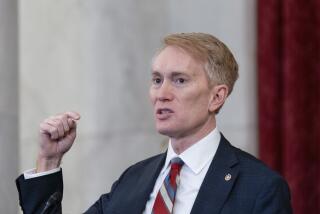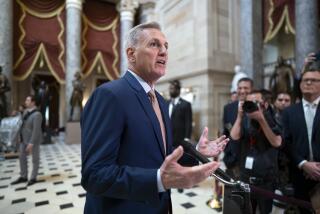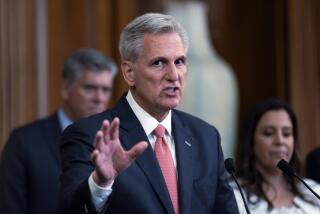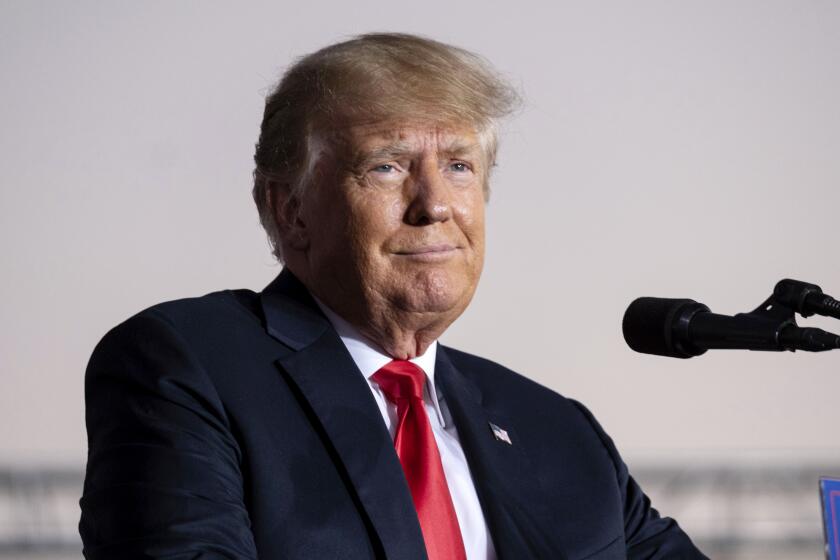Obama asks GOP senators to help find compromise on spending and debt
President Obama opened a private meeting with Senate Republicans on Thursday by asking them to search for compromise in the ongoing budget talks, but entrenched positions on both sides underscored the difficulty of resolving differences in time to avert a possible financial crisis.
According to Treasury Department calculations, Congress has until Aug. 2 to raise the legal ceiling — now $14.3 trillion — on the nation’s debt and avoid a default on government obligations.
Republicans have vowed not to raise the debt ceiling without agreement on far-reaching cuts in federal spending and no tax increases. Democrats have resisted some of the proposed cuts and called for increased federal revenue, saying the deficit cannot be reduced by spending cuts alone.
Thursday’s 90-minute exchange around a conference room table reflected a deepened divide over the role of government.
“We are talking here about spending reductions,” Senate Minority Leader Mitch McConnell (R-Ky.) said in recounting his message to the president. “There will be no tax increases in connection with raising the debt ceiling.”
Broad agreement has emerged in Washington that chronic budget imbalances on the order of this year’s $1.5-trillion shortfall need to be fixed, and the upcoming debt ceiling vote provides an opportunity for a budget deal, since neither side will want to be blamed for a catastrophic default.
McConnell hinted at the opportunity ahead as he extolled the ability of divided government to provide “the best time — and some would argue the only time — when you can do really big stuff.”
Yet even as both sides have found common ground on the broad goal of reducing deficits by $4 trillion over the next decade or so, stark differences in how to accomplish that goal remain.
On the way into the late-morning meeting, a White House aide emphasized the “balanced approach” the president would preach — a reference to the need for both spending cuts and tax increases.
But McConnell countered in Thursday’s meeting by laying out the contours of a proposal to earn his vote, and presumably that of the other 46 Republican senators: immediate budget caps over the next two years that press down discretionary spending, followed by eligibility changes to the Medicare and Medicaid health programs over the next five to 10 years and beyond. And no new taxes.
A White House source said the GOP senators made it clear that they were not exclusively pursuing the House-passed plan to privatize Medicare and shift more costs to seniors.
Sen. John Hoeven (R-N.D.), a former governor, said that when he pressed Obama on reducing rising Medicaid costs, the president responded by suggesting that was an area they could explore. “It was received well,” Hoeven said.
In a rare moment of accommodation, McConnell suggested later Thursday that brokering an agreement could pay off politically for both parties.
“If there is a grand bargain of some kind with the president of the United States, none of it will be usable for either side in next year’s election,” McConnell said. “None of it.”
More to Read
Start your day right
Sign up for Essential California for news, features and recommendations from the L.A. Times and beyond in your inbox six days a week.
You may occasionally receive promotional content from the Los Angeles Times.







